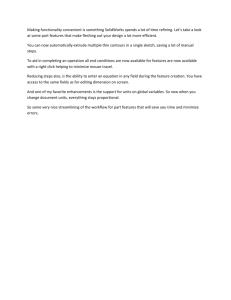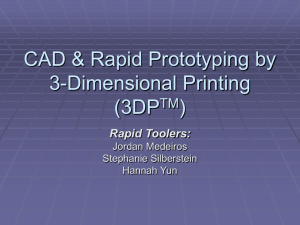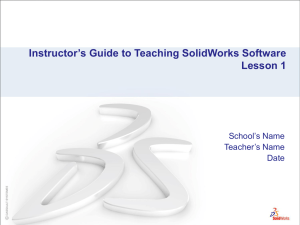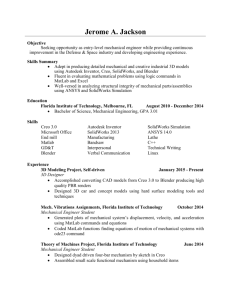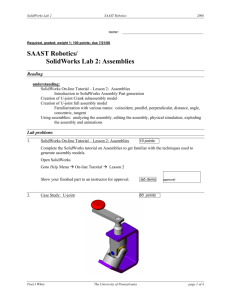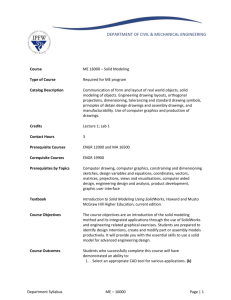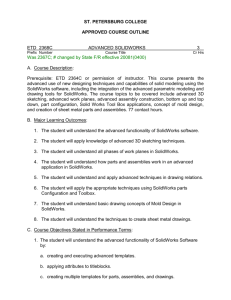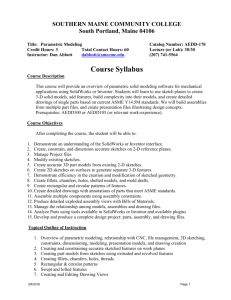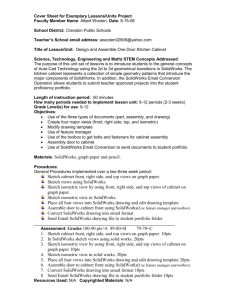DOC - University of Maine
advertisement
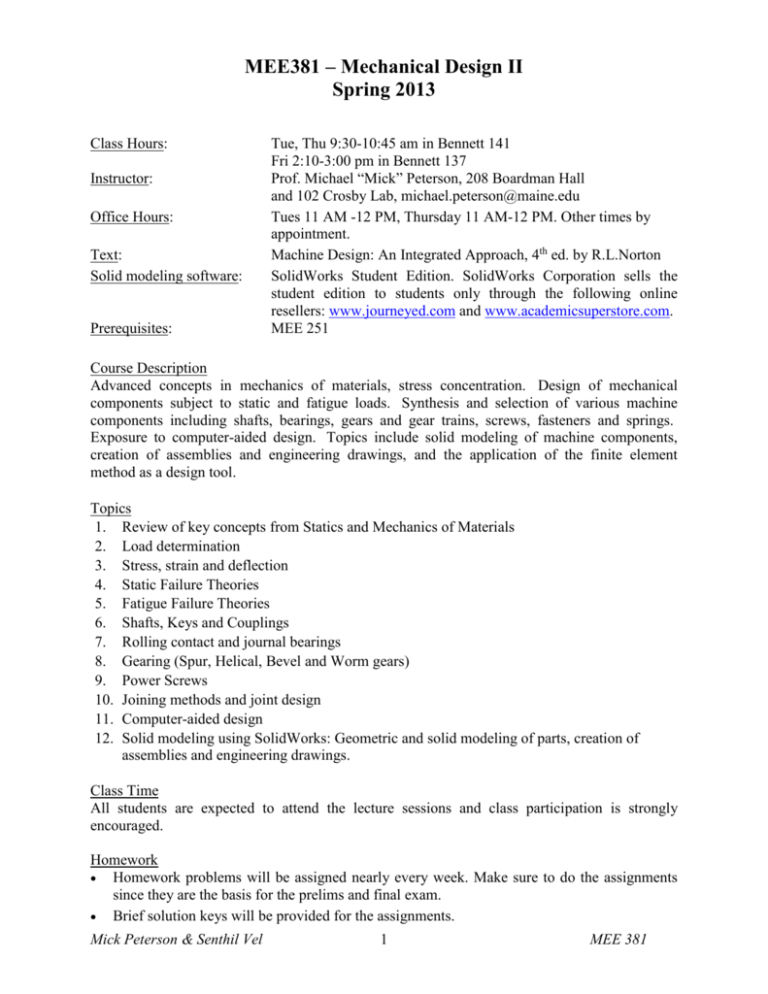
MEE381 – Mechanical Design II Spring 2013 Class Hours: Instructor: Office Hours: Text: Solid modeling software: Prerequisites: Tue, Thu 9:30-10:45 am in Bennett 141 Fri 2:10-3:00 pm in Bennett 137 Prof. Michael “Mick” Peterson, 208 Boardman Hall and 102 Crosby Lab, michael.peterson@maine.edu Tues 11 AM -12 PM, Thursday 11 AM-12 PM. Other times by appointment. Machine Design: An Integrated Approach, 4th ed. by R.L.Norton SolidWorks Student Edition. SolidWorks Corporation sells the student edition to students only through the following online resellers: www.journeyed.com and www.academicsuperstore.com. MEE 251 Course Description Advanced concepts in mechanics of materials, stress concentration. Design of mechanical components subject to static and fatigue loads. Synthesis and selection of various machine components including shafts, bearings, gears and gear trains, screws, fasteners and springs. Exposure to computer-aided design. Topics include solid modeling of machine components, creation of assemblies and engineering drawings, and the application of the finite element method as a design tool. Topics 1. Review of key concepts from Statics and Mechanics of Materials 2. Load determination 3. Stress, strain and deflection 4. Static Failure Theories 5. Fatigue Failure Theories 6. Shafts, Keys and Couplings 7. Rolling contact and journal bearings 8. Gearing (Spur, Helical, Bevel and Worm gears) 9. Power Screws 10. Joining methods and joint design 11. Computer-aided design 12. Solid modeling using SolidWorks: Geometric and solid modeling of parts, creation of assemblies and engineering drawings. Class Time All students are expected to attend the lecture sessions and class participation is strongly encouraged. Homework Homework problems will be assigned nearly every week. Make sure to do the assignments since they are the basis for the prelims and final exam. Brief solution keys will be provided for the assignments. Mick Peterson & Senthil Vel 1 MEE 381 Software SolidWorks will be used in this course. The Friday lectures will focus on Computer Aided Design using SolidWorks. The software is installed on the computers in Boardman 218. However, you are strongly encouraged to purchase the Student Edition of SolidWorks. You may want to consider purchasing a book, such as SolidWorks 2011 for Designers by S. Tickoo, if you have trouble learning SolidWorks based on the class lectures. Homework assignments will be given every week to help you become familiar with SolidWorks. You will need to submit hardcopies of parts, drawings and assemblies in class. Late submissions will not be accepted. Prelims There will be three preliminary examinations. The date will be announced roughly a week in advance of each prelim. Make sure you don’t miss the prelims since there will be no make-up examinations. Design Project There will be a design project illustrating various aspects of the analysis and design of mechanical components. The details of the project will be given in the project descriptions to be handed out towards the middle of the semester. Written final reports including CAD drawings will be required for the design project. Final Exam A comprehensive final exam will cover all material up to and including the last lecture before the exam. Final exam will be open book and open notes. Grade Weighting SolidWorks assignments Prelims (3) Design Project Final exam 10% 50% 20% 20% Additional Information Students with disabilities who may need services or accommodations to fully participate in this class should contact Ann Smith, Director of Disability Services in 121 East Annex, (voice) 5812319, (TTY) 581-2325 as early as possible in the semester. Academic dishonesty includes cheating, plagiarism and all forms of misrepresentation in academic work, and is unacceptable at The University of Maine. As indicated in the University of Maine’s undergraduate on-line “Student Handbook,” plagiarism (the submission of another’s work without appropriate attribution) and cheating are violations of The University of Maine Student Conduct Code. An instructor who has probable cause or reason to believe a student has cheated may act upon such evidence, and should report the case to the supervising faculty member or the Department Chair for appropriate action. In the event of disruption of normal classroom activities, such as due to an epidemic of infectious disease, the format for this course may be modified to enable completion of the course. In that event, you will be provided an addendum to this syllabus that will supersede this version. Mick Peterson & Senthil Vel 2 MEE 381


